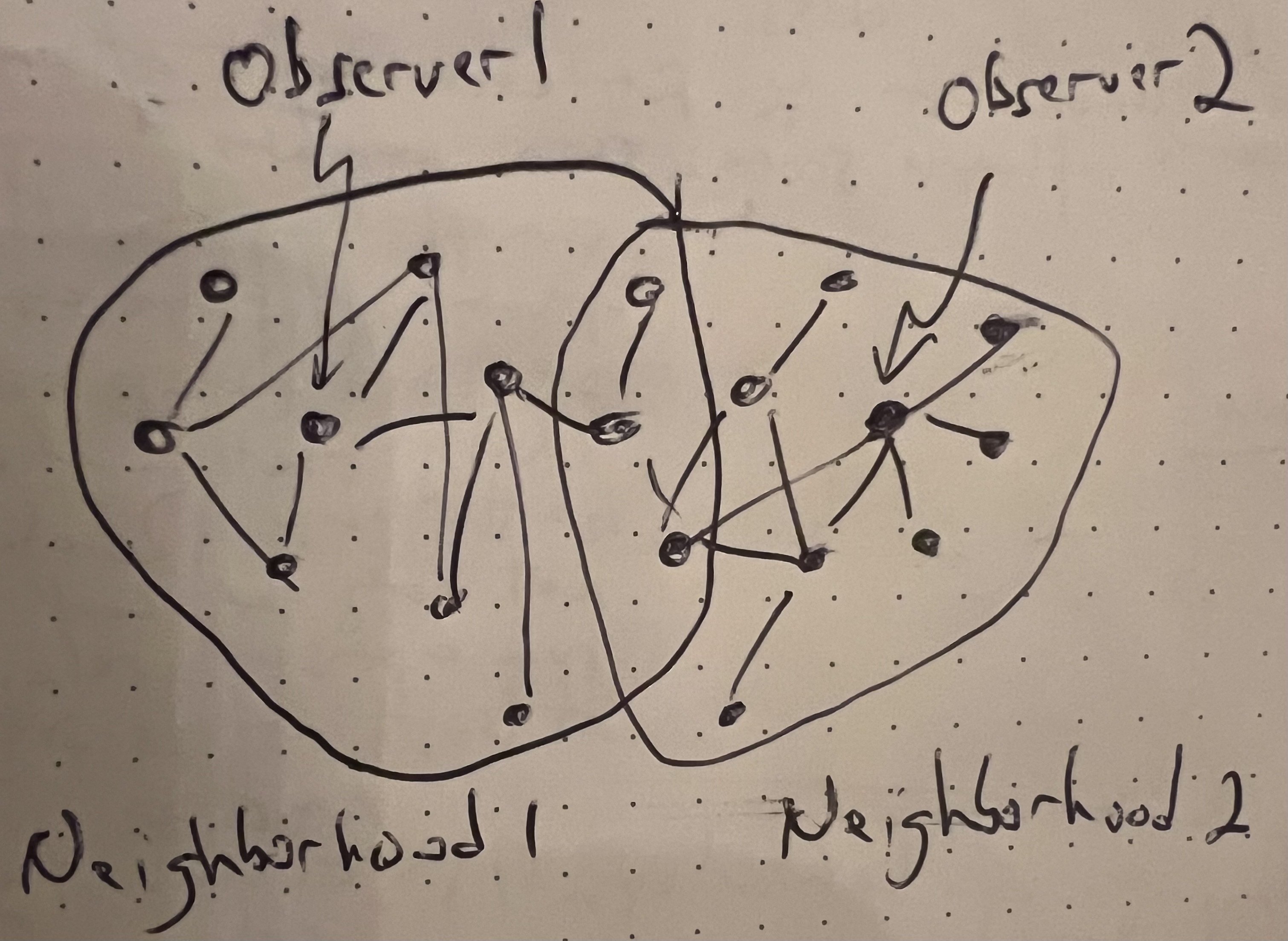One graph divided into two neighborhoods, n1 and n2. There is a region of overlap, but neither neighborhood is a subset of the other. Observer1 has a full view of n1, and O2 a full view of n2. O1 calculates scores via PageRank or the Grapevine method (GrapeRank, lol) on n1 and o2 runs them on n2.
Neither observer can see outside of the other’s neighborhood, with the following caveat: o1 and o2 can communicate with each other. Given any one of the nodes in the area of overlap, each can ask the other: what is the score (PageRank or GrapeRank) of that node, as calculated from YOUR perspective?
Just to illustrate: Alice (o1) can say that her Grapevine tells her that Bob (a node in the area of overlap) is a great guy (has a high Grapevine score). Then Charlie (o2) can turn around and say that his Grapevine tells him that Bob is a spook (Grapevine score is low), so watch out!
I have a question. At nostriga you stated n1 and n2 were “similar” (difference is less than some known value) and that this allows us to conclude that PageRank … has a unique solution? Is “nice” in some other respect? I’m not sure how to state your claim precisely. I’m presuming you meant that if o1 and o2 run PageRank separately, then we can assume that the sum of the differences in scores of the nodes in the area of overlap as calculated by o1 and o2 is less than some constant delta. Or maybe the stricter condition that for any individual node, the difference in scores calculated be the 2 observers is always less than some delta. Have I stated that correctly?

